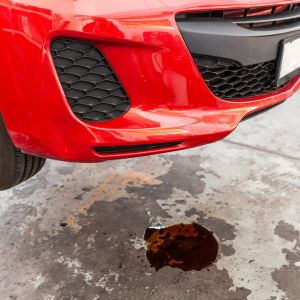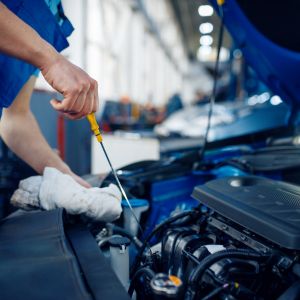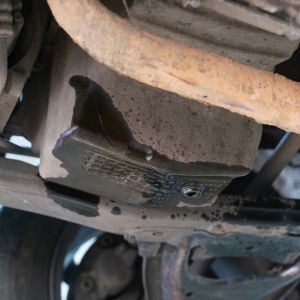You’ve just treated your car to a fresh batch of oil, ensuring its engine stays well-lubricated for optimal performance. However, it’s not uncommon for car owners to wonder: Is it normal for a car to leak oil after an oil change? Let’s delve into this query and unravel the mysteries of post-oil change oil leaks.
Common Causes for a Car to Leak Oil

A primary culprit behind oil leaks is a loose or faulty oil filter. When not properly tightened, it can lead to oil seeping out. Similarly, an improperly installed drain plug can cause leaks, emphasizing the need for meticulousness during oil changes. Additionally, a damaged oil pan or gasket can be a source of leaks, warranting careful inspection.
The Role of Gaskets and Seals
Gaskets and seals play a crucial role in preventing oil leaks. These components create a tight seal, keeping the oil contained within the engine. However, they aren’t immune to wear and tear. Over time, gaskets and seals may degrade, potentially leading to leaks. Regular inspection is vital to catch and address these issues promptly.
Oil Change Process

A standard oil change involves draining the old oil, replacing the oil filter, and adding fresh oil. Each step demands precision to avoid leaks. Ensuring the proper installation of the oil filter and the secure tightening of the drain plug are essential in preventing post-oil change leaks.
Signs of an Oil Leak
Identifying an oil leak early is crucial. Visual cues such as oil spots under the car or a burning oil smell can signal a problem. Pinpointing the source of the leak is equally important for effective troubleshooting.
Preventing Oil Leaks During an Oil Change
To avoid the headache of oil leaks after an oil change, follow best practices. Use high-quality oil filters and seals, and pay attention to proper installation procedures. These steps reduce the likelihood of leaks and contribute to a smoother, trouble-free driving experience.
Effects of Oil Leaks

Ignoring oil leaks can have severe consequences. The engine’s components may suffer damage, leading to costly repairs. Additionally, oil leaks contribute to environmental pollution. Responsible car ownership involves addressing leaks promptly to mitigate these issues.
Debunking Common Myths
There are misconceptions about the normalcy of oil consumption after a change. While minimal oil usage is typical, excessive leaks are not. Understanding the difference is crucial for informed car maintenance.
DIY vs. Professional Oil Changes
Deciding between a DIY oil change and a professional service is a choice many car owners face. While DIY options offer cost savings, professional services often provide expertise and precision, reducing the risk of post-change issues like oil leaks.
Manufacturer Recommendations
Car manufacturers provide guidelines for oil changes. Deviating from these recommendations can result in performance issues and potential leaks. Adhering to manufacturer guidelines is a simple yet effective strategy for maintaining your vehicle’s health.
Routine Maintenance Checks
Regularly inspecting your vehicle for leaks is part of responsible ownership. Catching and addressing issues early prevents them from escalating into major problems. Routine maintenance checks are a proactive measure that can save you time and money in the long run.
Handling an Oil Leak
If you detect an oil leak, act promptly. Addressing the issue immediately can prevent further damage. While some leaks may be manageable as DIY projects, others may require professional attention. Knowing when to seek help is key.
Environmental Impact
Beyond the impact on your vehicle, oil leaks have environmental consequences. Oil runoff can contaminate soil and water, posing risks to ecosystems. Responsible car ownership involves minimizing your vehicle’s environmental footprint.
FAQs
Is it common for cars to leak oil after an oil change?
While it’s not common, it can happen due to factors like loose filters or faulty installation.
How can I prevent oil leaks during an oil change?
Use quality oil filters and seals, and follow proper installation procedures.
What should I do if I notice an oil leak after an oil change?
Act promptly, identify the source, and address the issue based on its severity.
Can DIY oil changes lead to more oil leaks?
Yes, if not done carefully. Professional services often provide more precision.
What environmental impact do oil leaks have?
Oil leaks can contaminate soil and water, posing risks to ecosystems.
Conclusion
In conclusion, while it’s not normal for a car to leak oil after an oil change, it can happen due to various factors. Understanding the causes, signs, and preventive measures is essential for maintaining your vehicle’s health and minimizing environmental impact. Proactive care and adherence to best practices during oil changes go a long way in ensuring a leak-free driving experience.

